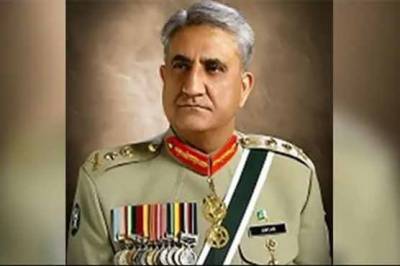- Discusses Pakistan’s fight against polio with Rotary International team

RAWALPINDI, February 4: Paying rich tributes to the veterans of 1st Pakistan Military Academy (PMA) Long Course for their great contributions, Chief of Army Staff (COAS) Gen Qamar Javed Bajwa on Tuesday said the institution had provided pioneer leadership to Pakistan Army over the years.
The army chief said this while attending the Platinum Jubilee Reunion of 1st PMA Long Course held in Rawalpindi, where he was invited as the chief guest.
Gen Qamar, addressing the ceremony, said Pakistan Army has established the Army Institute of Military History (AIMH), “where we are working to preserve our military history and veterans’ experiences which should be useful to younger generation of officers”.
The Platinum Jubilee Reunion was attended by surviving members of 1st PMA Long Course and families, said a statement issued by the Inter-Services Public Relations (ISPR).
The officers of the 1st PMA Long Course had joined the academy in January 1948 and 62 officers were commissioned on February 4, 1950 including Major Aziz Bhatti, Nishan-e-Haider.
Meanwhile, Chief of the Army Staff General Qamar Bajwa praised the efforts of Rotary International in Pakistan’s fight against polio, according to the Inter-Services Public Relations on Tuesday.
According to the army’s media cell, the army chief met with Rotary International’s four-member team.
In today’s meeting, measures related to healthcare in Pakistan and the country’s battle against poliovirus were discussed.
The army chief praised the contributions of the RI in the eradication of polio in Pakistan.
He also expressed hope that the efforts will lead to completely rooting out the disease from the country.
In January, it was reported that the overall tally of reported polio cases across the country reached 134 in 2019, including 91 cases in KP, 24 cases in Sindh, eight in Punjab and 11 in Balochistan.
The country is one of only three in the world where polio is endemic, along with neighboring Afghanistan and Nigeria, but vaccination campaigns have cut the disease sharply, compared with 306 in 2014 and more than 350,000 in 1988, according to Pakistani health officials.-Agencies



